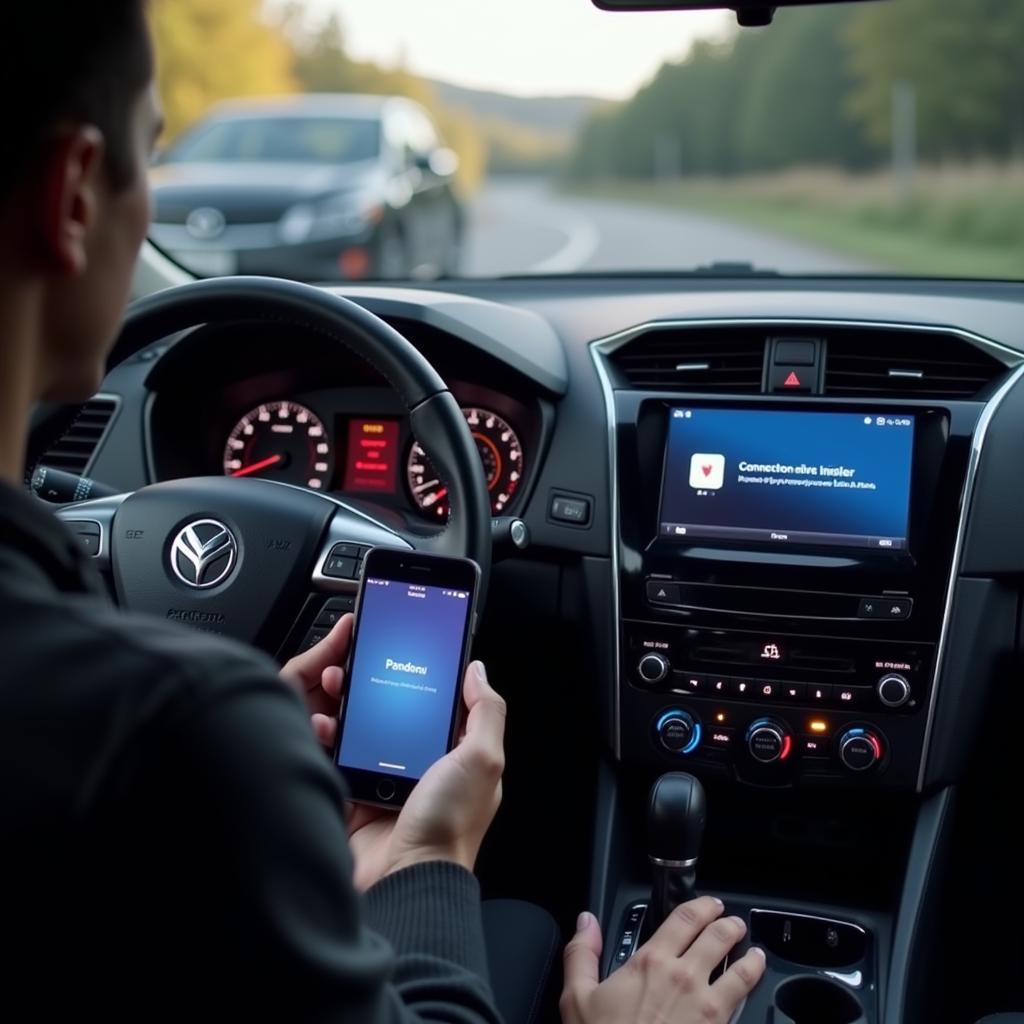The trolley problem with self-driving cars is a complex ethical dilemma that has captured the public imagination. It asks: how should autonomous vehicles be programmed to react in unavoidable accident scenarios? This article delves into the nuances of this challenge, exploring its implications for the future of autonomous driving.
The classic trolley problem presents a hypothetical situation where a runaway trolley is headed towards five people tied to the tracks. You have the option to pull a lever, diverting the trolley onto a side track where one person is tied. Do you sacrifice one life to save five? This thought experiment, while seemingly abstract, becomes strikingly relevant in the context of self-driving cars.
How Self-Driving Cars Face the Trolley Problem
Autonomous vehicles, by their nature, must make decisions in real-time. These decisions can involve navigating complex traffic situations, reacting to unexpected obstacles, and, in extreme cases, making choices with life-or-death consequences. trolley problem self-driving cars This raises the question: how should these vehicles be programmed to react when faced with an unavoidable accident? Should the car prioritize the safety of its occupants or minimize overall harm, even if it means sacrificing the passengers?
What are the Ethical Considerations?
The ethical considerations surrounding the trolley problem in self-driving cars are multifaceted. Utilitarianism, a philosophy that emphasizes maximizing overall happiness, might suggest minimizing the number of casualties. However, this approach raises concerns about sacrificing individuals for the greater good. On the other hand, prioritizing the safety of the car’s occupants could be seen as ethically justifiable self-preservation, but it might lead to higher overall casualties in some scenarios. trolley problem and self driving cars
“The trolley problem forces us to confront uncomfortable truths about our own values,” says Dr. Eleanor Vance, a leading expert in AI ethics. “There’s no easy answer, and the decisions we make about programming self-driving cars will have profound societal implications.”
The Role of Programming and Algorithms
The programming and algorithms that govern self-driving cars will ultimately determine how they react in these critical situations. These algorithms must be designed to consider a vast array of factors, including the number of people involved, the severity of potential injuries, and the legal framework governing traffic accidents. trolly problem self driving cars philosophy tube The challenge lies in translating complex ethical principles into lines of code.
Can We Program Morality?
The question of whether we can program morality into machines is at the heart of the trolley problem debate. While algorithms can be designed to follow pre-defined rules and prioritize certain outcomes, the concept of “morality” remains subjective and culturally influenced. This makes it incredibly difficult to create a universally acceptable ethical framework for autonomous vehicles. how self-driving cars will solve the ethical trolley problem
“Programming morality into a machine is like trying to capture lightning in a bottle,” explains Dr. James Carter, a renowned software engineer specializing in autonomous vehicle technology. “We can define rules and parameters, but true ethical decision-making requires a level of nuanced understanding that current AI systems simply don’t possess.”
The Future of Autonomous Driving and the Trolley Problem
The trolley problem will continue to be a central topic of discussion as self-driving cars become more prevalent. Finding solutions that balance ethical considerations with practical realities is crucial for the widespread adoption of this technology. trolley problem in self driving cars This necessitates ongoing dialogue between ethicists, engineers, policymakers, and the public.
In conclusion, the trolley problem with self-driving cars presents a complex ethical challenge with no easy answers. As we move towards a future with autonomous vehicles, addressing this dilemma is crucial for ensuring the safe and responsible integration of this transformative technology. For further assistance or information, feel free to contact us at AutoTipPro. Our phone number is +1 (641) 206-8880, and our office is located at 500 N St Mary’s St, San Antonio, TX 78205, United States.





Leave a Reply